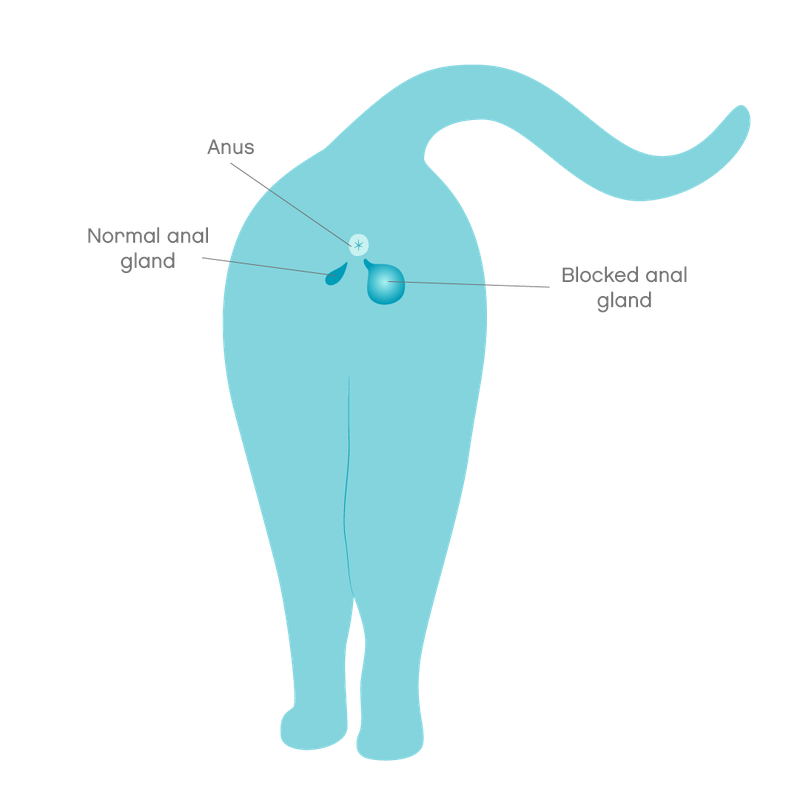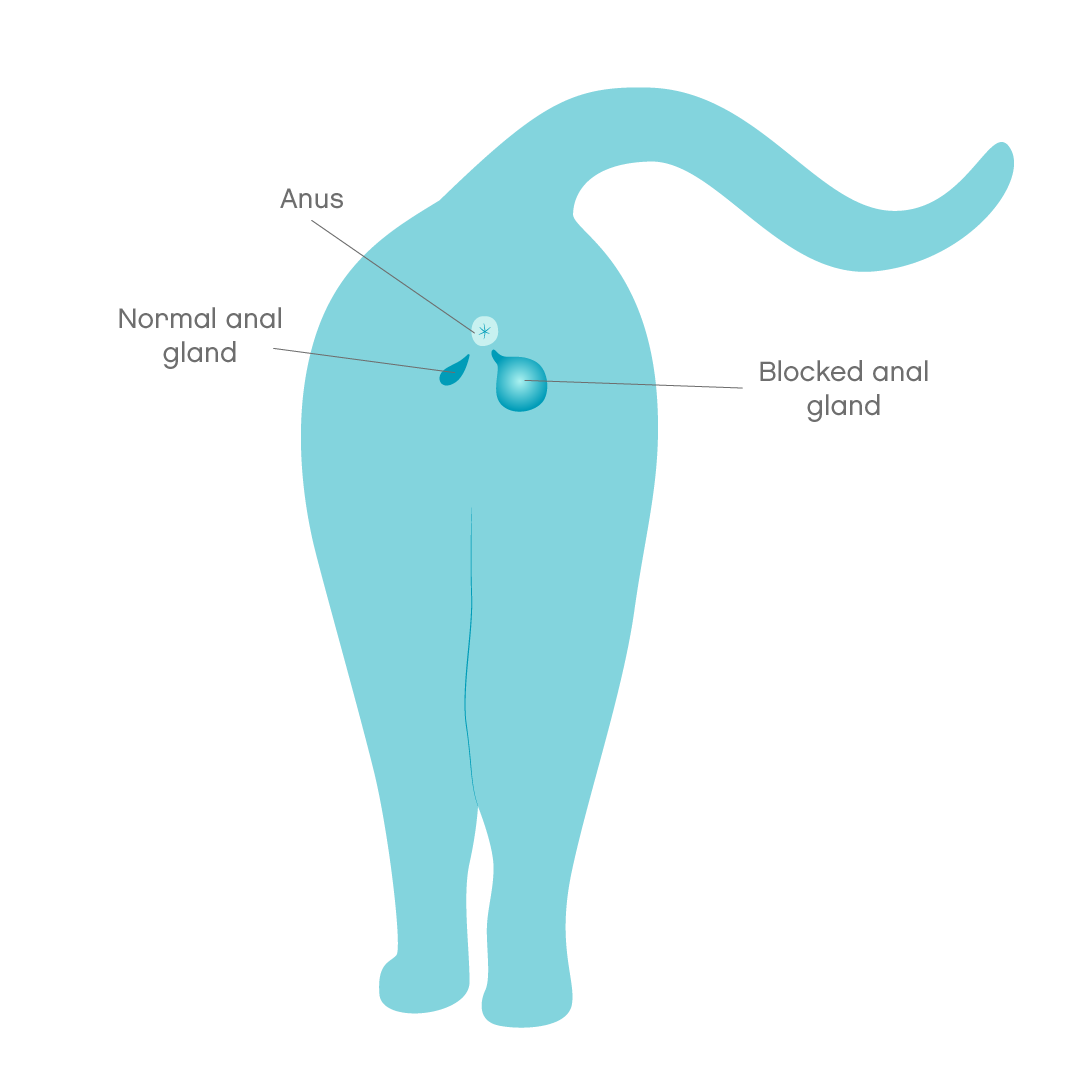Are you tired of dealing with your cat’s stinky secretions and smelly habits? You’re not alone! Millions of cat owners face the same frustrating issue: their feline friends’ anal glands. Yes, you read that right – anal glands! Those mysterious sacs located near a cat’s anus can cause quite the drama when they become impacted or infected.
Cat Anal Gland Problem: The Lowdown
In this blog post, we’ll dive into the world of feline anal glands and uncover the truth behind their function, common issues, and effective solutions. Whether you’re a seasoned cat parent or just welcoming your first feline friend into your family, it’s crucial to understand what these little sacs are all about.
What Are Cat Anal Glands?
Sometimes referred to as anal scent glands, these two small sacs on either side of the anus produce a pungent secretion that helps mark a cat’s territory. Think of it like leaving their signature scent behind! When cats rub their faces, bodies, or tails on surfaces, they deposit this scent, warning other felines to stay away from their territory.
That’s just the beginning! In our next section, we’ll explore common issues that can arise when these anal glands become impacted or infected…

As we explored earlier, cat anal glands play a crucial role in marking their territory and warning other felines to stay away. However, when these sacs become impacted or infected, it can cause significant discomfort for your cat.
Cat Anal Gland Problems: Common Issues
The most common issue with cat anal glands is impaction. This occurs when the secretion in the gland becomes too thick and forms a plug, causing pain and discomfort for your cat. If left untreated, impaction can lead to infection, which can be much more serious.
Another common problem is anal gland abscesses. These are pockets of pus that form around the infected gland, causing swelling, redness, and a foul odor. If not treated promptly, abscesses can become severe and even life-threatening.
To make matters worse, some cats may experience rectal itching or pain due to inflamed anal glands, which can lead to excessive licking or chewing at the anus. This behavior is often accompanied by scooting or dragging their hindquarters along the floor, leaving behind a trail of dirt and debris.
Symptoms of Cat Anal Gland Problems
If your cat is experiencing any of the following symptoms, it’s likely that their anal glands are causing trouble:
- Stinky secretions or a strong odor around the anus
- Painful or swollen anus
- Rectal itching or discomfort
- Scooting or dragging their hindquarters along the floor
- Inability to clean themselves properly due to anal gland impaction
It’s essential to catch these issues early on and seek veterinary care if you notice any of these symptoms. Your veterinarian may recommend a combination of treatments, including:
- A physical examination to assess the condition of the anal glands
- X-rays or other imaging tests to rule out other potential causes of the symptoms
- Medications to reduce swelling and pain
- Surgical intervention in severe cases, such as abscesses or impacted glands
For more information on cat anal gland health and how to keep your feline friend comfortable, check out the International Cat Care’s article on Cat Anal Glands: A Guide for Owners.
In our next section, we’ll explore some effective ways to prevent and manage cat anal gland problems…
Get Expert Advice on Cat Anal Gland Problems
Speak with a veterinarian about your cat’s anal gland issues and get personalized guidance.
Start chat with a Medical & Health ExpertSummaring up our exploration of cat anal gland problems, we’ve covered the basics: what they are, their purpose, and common issues that can arise when they become impacted or infected.
Key Points Covered:
We’ve discussed how anal glands produce a pungent secretion to mark a cat’s territory, warning other felines to stay away. We’ve also touched on common problems that can occur when these sacs become clogged or inflamed, leading to discomfort, odor, and even health issues for your feline friend.
Final Insights:
So, what’s the takeaway? Understanding cat anal glands is crucial in preventing and addressing potential problems. By recognizing the signs of impacted or infected anal glands, you can take proactive steps to keep your kitty comfortable and healthy. Whether it’s through regular grooming, veterinary check-ups, or at-home remedies, you’re empowered to make informed decisions for your feline companion.
Conclusion:
In conclusion, cat anal gland problems might seem like a daunting topic, but with this comprehensive guide, you’re now equipped to navigate the world of feline pheromones and anal sacs. By prioritizing your cat’s health and comfort, you’ll not only strengthen your bond but also ensure a happier, healthier life for your beloved pet. So go ahead, take control, and celebrate the little things – like the pungent scent of your cat’s anal glands!
Thank you for visiting our online retail store – your questions answered: Have you got questions about our products or services? Look no further! Our online retail store is here to help. Check out this article to get answers to all your burning questions.
Bosch Dishwasher Silence Plus 50 dbA Troubleshooting: Is your Bosch Dishwasher Silence Plus making some noise? Don’t worry, we’ve got you covered! Check out this troubleshooting guide to diagnose and fix the issue. Click the link to get started!



